This article was co-authored by Pradeep Adatrow, DDS, MS. Dr. Pradeep Adatrow is the only board certified Dentist, Periodontist, and Prosthodontist in the southern United States. With over 15 years of experience, Dr. Adatrow specializes in dental implants, TMJ treatments, periodontal plastic surgery, surgical and non-surgical periodontics, bone regeneration, laser treatments, and soft tissue and gum graft procedures. He received a BS in Epidemiology and Biostatistics from the University of Alabama and earned his Doctor of Dental Surgery (DDS) degree from the University of Tennessee College of Dentistry. Dr. Adatrow then completed a three-year postgraduate program in periodontics and implantology at Indiana University and went on to complete another three-year postdoctoral program in advanced prosthodontics from the University of Tennessee. He also serves as a full-time professor and the Director of Surgical Prosthodontics at the University of Tennessee. Dr. Adatrow received the Dean's Junior Faculty Award and the John Diggs Faculty Award, and he was inducted into the Deans Odontological Society. He is board certified by the American Board of Periodontology and is a Fellow of the prestigious International College of Dentistry – a feat that only 10,000 others worldwide can claim.
There are 8 references cited in this article, which can be found at the bottom of the page.
This article has been viewed 137,121 times.
Tetanus (Lockjaw) is a serious bacterial infection that damages muscles, nerves, and respiratory function. The Clostridium tetani bacteria can enter the body through a cut or wound and spread within as little as three days. Early symptoms (within three days to three weeks of infection) include headaches, difficulty swallowing, and stiffness in the neck and jaw. If you think that you may have tetanus, seek medical treatment before it's too late!
Steps
Knowing the Symptoms
-
1Identify the early signs of tetanus. First, you'll feel a headache and a muscular stiffness in the jaw. It will be difficult to open and close your mouth. This is why the condition is commonly known as "lockjaw." Symptoms usually set in about eight days after infection, although the onset has been known to range from three days to three weeks.[1]
- A shorter incubation period signals a more heavily infected wound. Also, tetanus-infected wounds take longer to incubate when they are father from the central nervous system. Seek urgent treatment if you experience tetanus symptoms within fewer than eight days of exposure.
- On their own, a headache and a slightly stiff jaw should not terrify you. This could mean a lot of things. However, it wouldn't hurt to check with a doctor if you're worried.
-
2Watch for progressing symptoms. As tetanus worsens, you'll experience a stiff neck, and you'll have trouble swallowing. Other symptoms may include:
- Painful hardening of the abdominal muscles
- Spasms in the jaw, chest, and abdomen. These spasms can cause painful, hyper-extended back arching, or opisthotonos.
- Sweating and fever
- Irregular breathing and heartbeat
Advertisement -
3Be aware of the complications. Advanced cases of tetanus can severely impair your breathing with spasms in your throat and vocal cords – and these spasms can cause fractures and muscle tears. Muscular stiffness may cause the spine and other long bones to fracture. You may experience high blood pressure and an irregular heartbeat. Untreated tetanus can cause pneumonia, blood clots in the lungs, and even a coma. Despite the innovations of modern treatment, 10-30% of tetanus patients die from the condition.[2]
- The mortality rate is highest in unvaccinated people and people over 60 years old. Your chances might be better if you're vaccinated, you have a strong immune system, and you're relatively young. This does not mean that you shouldn't be worried!
Seeking Treatment
-
1See a doctor. If you think you might have tetanus, admit yourself to a hospital as soon as possible. In most cases, you will need to be hospitalized to treat a tetanus infection – especially if it is severe.[3]
-
2Get an immediate dose of antitoxin. If possible, get treated with a prophylactic dose of human tetanus immune globulin (TIG) (or equine antitoxin). This should begin to halt the spread of tetanus through your system.
- You do not need to wait for severe symptoms to seek treatment. If you have not been vaccinated and you think that you've been exposed to tetanus bacteria: consider getting the antitoxin.
-
3Ask your doctor about antibacterial drugs. Penicillin, chloramphenicol, and other antimicrobial agents are commonly used to treat tetanus.[4] You may also be given drugs to stabilize your muscle spasms.
-
4Know what to do in a severe case. In very severe tetanus infections, drug treatment might be coupled with tissue debridement: the surgical removal of dead, damaged, or infected tissue.[5] You should only go this route if it is recommended by a licensed and trusted physician. Be absolutely certain that the infection has spread too far to treat otherwise.
-
5Get the vaccine once you recover. Be aware that even after you've recovered from tetanus, you can still get reinfected at any point. Get the vaccine as soon as possible after the symptoms disappear. This will reduce the risk of lockjaw coming back. Continue to re-up with booster shots every ten years (at least) to keep yourself protected.
Preventing Tetanus
-
1Know how tetanus spreads. The Clostridium tetani bacteria enter the body through cuts and broken skin.[6] C. tetani lives in soil, dust, and animal feces. When these bacteria enter a deep flesh wound, the spores may produce a powerful toxin, tetanospasmin, which actively impairs your motor neurons – the nerves that control your muscles. There is an incubation period of 3-21 days before symptoms begin to appear.
- The incubation period varies according to the distance the infected wound is from the central nervous system. For instance: an infected cut on the finger will have a longer incubation period than a cut on the neck.
- Be quick to treat deep, penetrating wounds. The bigger and more severe the injury, the easier it will be for C. tetani to enter your body.[7]
-
2Be careful when traveling. Tetanus infections occur all over the world. However, they are most common in hot, wet climates where the soil is rich with bacteria. Tetanus usually does not spread from one person to another. Nonetheless: be careful what you touch when you are walking around with an open cut or wound. If you are traveling in the developing world, you may not have access to the same caliber of tetanus treatment as you would in your home country.
-
3Get vaccinated. Ask your doctor about the "Dtap" booster vaccine for tetanus, diphtheria, and acellular pertussis. You can usually prevent infection through proper immunization with the tetanus vaccine. This is how tetanus has been largely eradicated from the developed world.
- In the United States, nearly all modern cases of tetanus occur in adults who were not vaccinated as children, or who have not received a vaccination in the past ten years.[8]
Warnings
- Because of widespread immunization, tetanus is now a rare disease. However, the consequences of the disease can be severe if left untreated. If you believe you have become infected with tetanus, see your doctor immediately.⧼thumbs_response⧽
References
- ↑ http://www.nfid.org/idinfo/tetanus
- ↑ https://www.health.ny.gov/diseases/communicable/tetanus/fact_sheet.htm
- ↑ http://www.cdc.gov/tetanus/about/diagnosis-treatment.html
- ↑ http://www.ncbi.nlm.nih.gov/books/NBK8219/
- ↑ http://www.healogics.com/Patients/patients/wound-debridement
- ↑ http://www.phac-aspc.gc.ca/lab-bio/res/psds-ftss/clostridium-tetani-eng.php
- ↑ http://www.medicinenet.com/tetanus/article.htm
- ↑ http://www.encyclopedia.com/topic/tetanus.aspx
About This Article
Tetanus, or lockjaw, is a serious infection that can enter the body through a cut or wound and spread to the rest of your body in as little as 3 days. If you get a deep puncture wound from a dirty source, get a tetanus booster immediately. Some of the early signs of tetanus include headaches and stiffness in the jaw. As the infection worsens, you may have a fever, muscle spasms, trouble swallowing, or an irregular heartbeat. If you suspect that you have tetanus, see a doctor or go to the hospital as soon as possible so you can be given a dose of antitoxin to stop the spread of the infection. Once you recover, you can still get reinfected, so get the vaccine as soon as your symptoms disappear to reduce the chance of lockjaw returning. To learn how to prevent tetanus, keep reading.
-Step-1-Version-2.webp)
-Step-2-Version-2.webp)
-Step-3-Version-2.webp)
-Step-4-Version-2.webp)
-Step-5.webp)
-Step-6.webp)
-Step-7.webp)
-Step-8.webp)
-Step-9.webp)
-Step-10.webp)
-Step-11.webp)
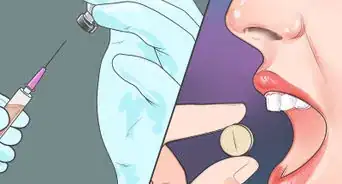

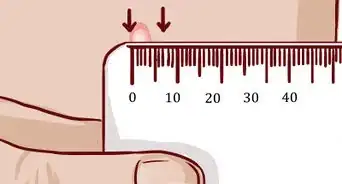

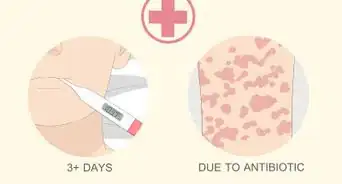






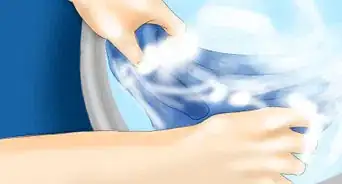

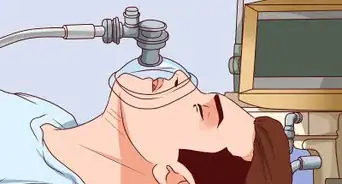








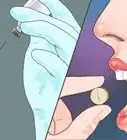
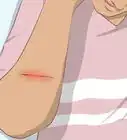
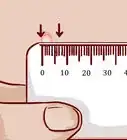




































Medical Disclaimer
The content of this article is not intended to be a substitute for professional medical advice, examination, diagnosis, or treatment. You should always contact your doctor or other qualified healthcare professional before starting, changing, or stopping any kind of health treatment.
Read More...